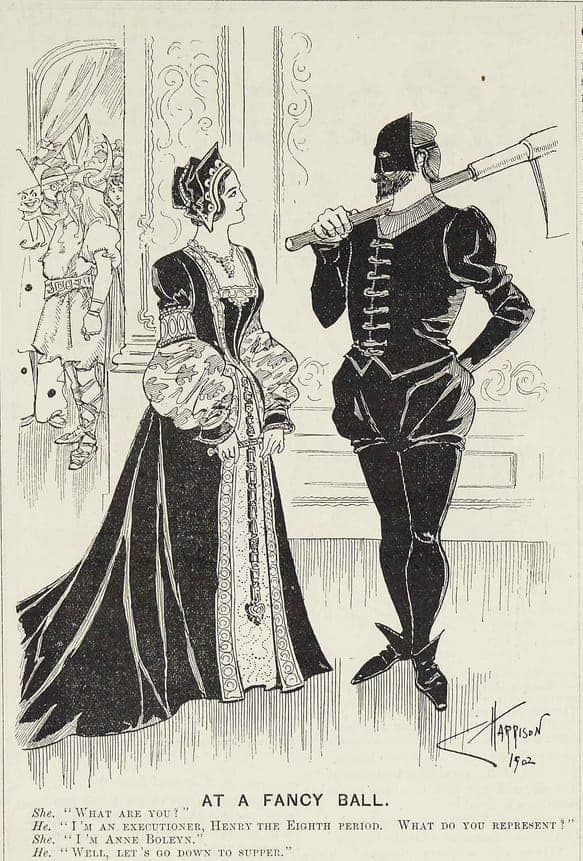│By Lydia Clarke, Gale Ambassador at the University of Leeds│
Moving to a completely new place is incredibly challenging. After A-Levels, I know the last thing you want to think about is university assignments, but I promise they are not that scary. Whilst there is sadly not a magical wand to whisk away university stress, this blog post will hopefully help you manage your coursework without burning out. Gale Primary Sources digital archives were massively helpful for me to find relevant primary source material and get to grips with practising my critical thinking skills. I will demonstrate how in my first year at university I used a book I found in Eighteenth Century Collections Online to apply and evaluate my analysis of the debate about gender studies in history for my coursework.
How does History Coursework vary from A-Levels to University?
Looking back as a second-year undergraduate student, I think the most noticeable variation for me was incorporating primary sources. For my A-Levels, secondary sources reigned supreme as I explored scholarly research platforms like Google Scholar and JSTOR to evaluate my interpretation of Anne Boleyn’s downfall.

This experience greatly helped me learn how to research other historians’ arguments and how they fit into a wider historiographical debate, but it left me with no knowledge of how to find primary sources beyond those we were given for our course. In my first year of university, this was a major obstacle because I didn’t know where to begin when lecturers repeatedly emphasised the importance of finding primary sources to include.
Following my seminar tutor’s advice to explore the subject databases linked on the University Libraries’ website, I came across Eighteenth Century Collections Online which introduced me to the millions of sources in Gale Primary Sources digital archives. It has been my go-to whenever I need to find further primary sources for my modules, because of the wide variety available.
Tips on How to Approach your History Coursework
With fewer contact hours and clashing deadlines, experimenting with when you work to find out what times you’re more productive, can help university seem less overwhelming. Keeping an online or physical diary and following a little and often approach can make coursework more manageable by breaking it down into sections, rather than trying to do everything at once.
Everyone works differently, so it is vital to figure out where you work best. University offers choices of study spaces to keep you engaged whether it’s the library, local cafes, and your accommodation. I have found switching up my study spaces every so often helps me to maximise my concentration. This can be great as well if you experience writer’s block to help give you a fresh perspective.
The sooner you start your coursework the better. This has most likely been said since the dawn of time, and I wouldn’t blame you for rolling your eyes, but it really does give you more breathing room to pursue wider reading beyond the module reading list, ask any questions you come across and time to redraft any changes you might want to make.
You need to live and breathe mark schemes. It may seem obvious but, unlike A-Levels, university has no past papers, so mark schemes are the only resource to see how exactly tutors will assess your work. It doesn’t mean there’s one right way to write your assignments, but they can be very useful to inform which aspects to dedicate the most time and effort towards.
The Tips in Action
One of the first ever essays I had to do was review the historiography surrounding gender history and apply my evaluations to critically analyse a primary source. It was then I started to explore Eighteenth Century Collections Online for potentially relevant sources. Navigating databases is straightforward once you know how, but takes practice to figure out how to get the most useful search results. Going into any archive you will most likely be confronted with a page like this:
In my debate review, I concluded that dual analytical approach of descriptive and causal analysis with restrained intersectional scope was the best method for historians to analyse gender’s historical significance. I observed that factors like marriage, sexuality, and religion were key areas historians investigated to understand how over time stereotypical gender roles were used to socially construct gender identity. The late eighteenth century proved to be a particularly contested period for historians, so I knew I needed to find a source which reflected these themes and timeframe.
Rather like how I would search for secondary sources in my university library, the advance search feature in Eighteenth Century Collections Online allowed me to narrow down my results by key search terms, and filter my results by publication date:
Starting earlier gave me time to read widely about the overall debate for how the gender history approach should be carried out, and to closely examine the mark scheme which revealed that applying our findings to analyse our primary source was the most pivotal aspect of that particular coursework.
In the planning stages, I made a timetable separating my coursework into different stages, and I allocated the most time to researching and evaluating a primary source. The little and often approach allowed me the flexibility to stay productive, give myself time to unwind and keep refining my search results until I found the most useful source; Advice to Unmarried Women, a late eighteenth-century anonymous advice book, which exemplified the complicated relations between gender and religion at the time.
![Advice to unmarried women: to recover and reclaim the fallen; and to prevent the fall of others, into the snares and consequences of seduction. Printed for J. F. and C. Rivington, no 62, St. Paul's Church-Yard, MDCCXCI. [1791].](https://review.gale.com/wp-content/uploads/2024/02/advice-to-married-women-border.jpg)
The Ultimate Advice
Unfortunately, there isn’t a one-size-fits all solution to approaching coursework as you move from A-Levels to university, but the most important piece of advice I learned in my first year was to make sure to rest, whether that’s doing a society event, pursuing a hobby, or even just going for a walk. It’s easier said than done, but to be highly productive it’s essential to look after yourself beyond the bare essentials. University is a marathon, not a sprint.
If you enjoyed reading about how to manage your coursework, check out these posts:
- Making Peace Or: How I Learned to Stop Worrying and Love Primary Sources
- An Undergraduate’s Companion: Finding Primary Sources Using Gale’s Alternative Search Tools
- Using Primary Sources in Revision and Exam Preparation
Blog post cover image citation: Image from @windows on Unsplash: https://unsplash.com/photos/macbook-pro-on-brown-wooden-table-zSCHyhiRSeQ




